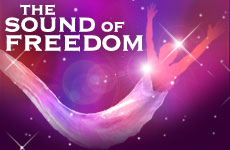 Identifying as a Jew
Identifying as a Jew


5 min read
The primal cry of the shofar expresses the deepest core of a person that words alone cannot reach.
The sound of the shofar is the call to freedom. The Torah provides for the blast of the shofar to mark the start of yovel, the jubilee year in which all slaves were freed and land reverted to its tribal owners. The Torah tells us of a great shofar that will sound at the End of Days -- the debut of the ultimate freedom characterized by the messianic era.
What spiritual power makes the blast of the shofar so liberating? We blow the shofar on Rosh Hashana and, according to custom, during the entire preceding month of Elul. This shofar is traditionally understood as a call to repentance. What does this have to do with the freedom?
The answer lies in the spiritual expression embedded in the call of the shofar. Human beings express themselves through different means of communication. We generally express ordered ideas, conscious thoughts, and intellectual observations through the most suitable medium: the realm of speech. We join words to form premeditated and meaningful sentences and paragraphs.
While speech is an effective form of conveying information or thoughts, it is also a step removed from one's deepest feelings. One can easily control speech and manipulate it so that it transmits a message that does not necessarily reflect that which lies deep in one's heart.
There is, however, another system of communication, one that comes from a deeper and more genuine place within -- a place where words are inaccessible and insufficient. It is a form of communication that is harder to convincingly manipulate, and is often the product of involuntary expression. When a person is touched to the core, whether through shock, tragedy or uncontainable joy, a new system of expression takes over. It is the world of "tzeaka," of crying out. It is the sound of a primal scream from deep within that breaks through to the surface.
Sometimes its message is an expression of one's pain; sometimes it simply broadcasts one's existence. Children use this more pure, though less intelligible, form of expression long before their ability to speak develops. They employ to call attention to themselves and make us aware of their presence.
The sound of the shofar begins with a simple breath, and ends with a note, broken or straight, depending on the required sound. In describing those sounds, the Talmud uses metaphors of crying -- a protracted sighing cry and uncontrollable broken weeping. That primal cry of the shofar reveals its secret. Mystical sources explain that the shofar spiritually expresses places in a person that words cannot reach. It penetrates the core of a Jew's existence, and taps into the essence of the Jew. It is the primal cry of the soul, an existential scream.
If the shofar expresses the inner self of a Jew, how is it liberating? Furthermore, what in the shofar blast is a catalyst for repentance and intimacy with God? Judaism maintains that the inner will of every Jew is to connect to spirituality -- to God -- on the deepest level possible. This existential desire is not manifest in our every behavior because something external, a foreign partition, prevents the heart of every Jew from bursting forth. Our rabbis attribute this barrier to the evil inclination and the sorry state of exile in which we find ourselves, a state which impairs our ability to connect to our inner selves. Our tradition reveals that the shofar slices through all those external layers and frees us to do what our inner self really wants. The ultimate moment of that freedom is on Yom Kippur, a day on which our connection with our inner selves is so evident that even the forces of evil are virtually powerless.
The shofar, therefore, is a liberating force that spiritually frees us from that which coats and clouds our core desires to connect to out heritage and our God. The shofar paves the way for growth and self-knowledge. The barriers often fool us into thinking that they, and not spiritual aspirations, reflect our true inner will; the shofar exposes those alternate desires as fraudulent. We can't always consciously feel the effects of the shofar, but the impact on our souls is unquestionable.
We blow shofar throughout the month of Elul to herald the call to repentance. In Hebrew, the word for repentance is "teshuva," which literally means return. One can understand how the term applies to a person who lived a spiritual life, left it, and then returns. But why is teshuva an appropriate term for one discovering Jewish roots and identity for the first time? How is the liberating message in the shofar connected to teshuva?
Regardless of one's background, social upbringing, or religious affiliation, the mystics teach that the desire to connect to God shines from every Jewish soul. The shofar's power pierces all the barriers that separate a Jew from the Jew's inner self. Connection to that beacon of light, therefore, is not the incorporation of some new, external idea, but a return to one's genuine self, regardless of whether that true self previously surfaced.
By opening our hearts to hear its message, the shofar can serve as a mystical signpost that directs us back home.
